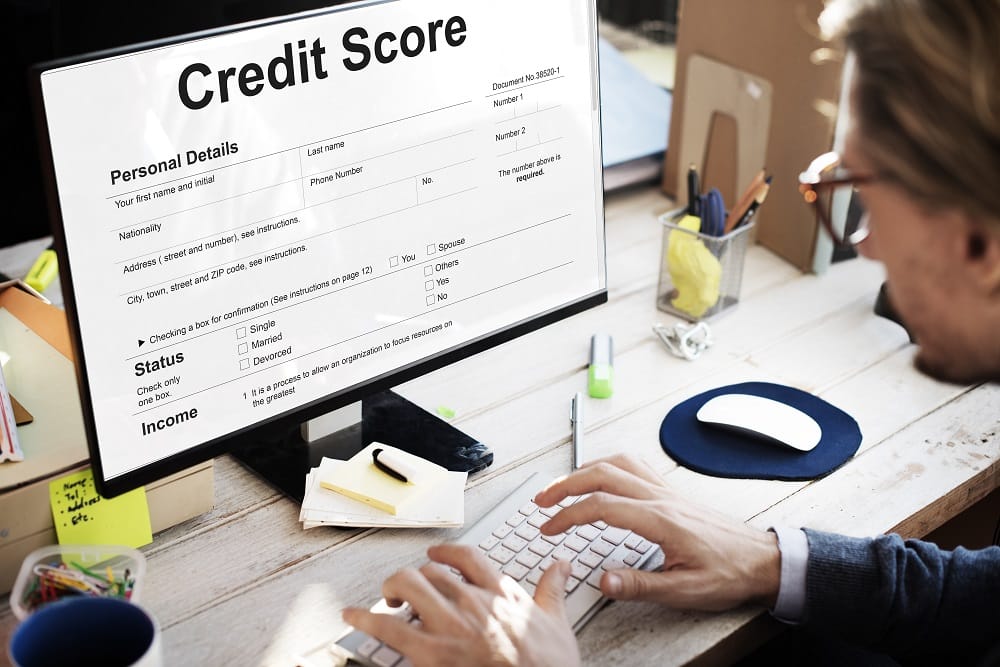It’s not a disgrace if you have got a low credit score. But if that is true, then it has definitely happened for some reason. And it is going to be a matter of credit (for you) if you start making efforts to find them.
A drop in a credit card score is a ‘fairly common’ issue for almost any credit card user on the globe. Credit cards do come with a lot of benefits. But they bring with them a series of complex terms and conditions as well.
In order to keep a good credit score, you must make all your transactions via your credit card both timely and sufficiently.
When you do that, you ensure that you are using your credit card in the right ways and that you don’t have to worry about a drop in your credit score.
But that’s just a very rare thing to say.
Reasons?
Well, a recent survey states that the British population has been suffering the pangs of a low credit score for a really long time. It has been revealed that almost 49% of the adults in the country and 72% of the young adults didn’t even check their credit card scores.
What’s more surprising?
The survey found that almost 78% of the entire population experiences a low credit score.

Reasons Your Credit Score Goes Low
If everyone would have carefully noticed how they’ve been using their credit cards, there might not have probably been any low credit issue charging you suddenly. You might not even have thought of taking out very bad credit loans with no guarantor or broker to fix the problem immediately and effectively.
But the thing is, they cannot be blamed too.
In this hurly-burly of life and tight schedules and appointments and consultancy and management and insurance and a lot of works, modern people hardly get the time to sit down and deal with serious matters like a credit card score.
But, you can get some help here.
Your credit card score going low is expected. However, it probably happens for the following reasons:
- A derogatory mark
- Have you missed a payment or made it late?
- Reduced credit card limit
- Closing off the credit card
- When you might have paid off a loan
- Did you just open multiple credit lines or apply for a new credit card?
- You made a really large purchase using your credit card
Let’s know a little bit about these problems in detail:
- A derogatory mark
A derogatory mark on your credit card means improper, insufficient or untimely marks in the payments reports of your credit card.
Often a derogatory mark on your credit card may reflect issues like lawsuits or tax liens or a County Court Judgement (CCJ).
What it means is that your credit card is carrying a ‘mark of improper conduct’, and yes, that can affect your credit score, making it low.
Such a mark can be active on your credit card for the next 10 years, negatively influencing the quality of service you get from it.
But, often, these issues are found a little too erroneous. To find out what’s the real deal; try to investigate the matter and talk to your credit card service provider.
- Have you missed a payment or made it late?
Did you? That’s okay.
Credit card payments must be made timely, and that too in the right amount. If you made a late payment using your credit card, then your credit card issuers might penalize you with a bad credit score.
For example, you will be marked with a bad credit score if you’re 30 days late to make a payment. That score goes even lower if the period extends to 60 days or 90 days.
Often this might happen to you for being too much occupied with other work. Some customers revealed that managing more than one credit card leads to this problem as well.
- Reduced credit card limit
There is a relationship between the credit card limit and the card’s utilisation rate.
Let’s suppose you’ve been using a credit card with a limit of 5000 pounds and your regular payment using that card is 1250 pounds, which means 20% of the limit.
This percentage is called the utilisation rate.
However, when the credit card limit falls (such as the 5000-pound limit falls to 4000 pounds), it is necessary to make the utilisation rate correspond to the change.
When that is not done (either for necessities or negligence), you lose your credit score.
Think clearly. Spending the same 1250 pounds with a reduced limit of 4000 pounds would only increase the utilisation rate to somewhat 30%.
That’s not what you want if you won’t keep your credit score high.
- Closing off the credit card
It is highly possible that you close off a credit card. Yes, it does affect your credit score.
A credit card gets valuable as its usage increases and its service time extends. Closing off an old credit card will lower your credit score more than your new credit card.
However, either way, you lose your credit score.
Paying a loan off with a credit card is undoubtedly a good idea. But not all types of loans.
Paying off a loan with a credit card affects your score by something called the ‘credit mix’.
Although paying off loans like mortgages or automobile loans with your credit card improves your credit mix, you must learn about the other types of loans, repaying, which might affect your credit score.
However, you can try something more useful!
If you have a low credit score, fix it by taking out a very bad credit loan with no guarantor and no broker because these loans are meant for that purpose only. You take them out, pay your debts, then repay their amount in time and, at last; you’ll end up with a good credit score.
Let’s be honest. Do you really need to go for more than one credit card option and start dealing with multiple accounts? You may not.
Handling many accounts are most likely to make late payments. You might also miss payments.
If you still need more than an account, you can think of investing in an automated tool or an app that can help you make timely payments.
At least, you’d get to safeguard your credit score, right?
- You Made a Really Large Purchase Using Your Credit Card
When you make a payment using your credit card that exceeds the utilisation rate, your credit score is down.
Finance professionals consider keeping your utilisation rate below 30%.
Often purchases are made using your credit card with high utilisation rates, and later, it isn’t taken care of to help your credit score retain itself.
What do you need to do? Well, just keep your eyes open and take steps if necessary.
To Conclude: Foreclosure or Bankruptcy Can Seriously Affect Your Credit Score
You couldn’t pay off your mortgage or home loan amount, and now your lender has taken possession of your home. That’s foreclosure. And you already know what bankruptcy is.
In both cases, you will not be able to pay off multiple debts. And that can affect your credit score SERIOUSLY.
Try taking out a very bad credit loan with no guarantor or broker, which would help you refinance by paying off your previous lenders and getting you out of these extremely difficult circumstances.
Remember, your intelligence (and smart approaches) is the key to fixing every problem, even in the most hostile situations.
The decision to take out a simple loan, which has been just mentioned, can work as the key. Use it if you want to.







